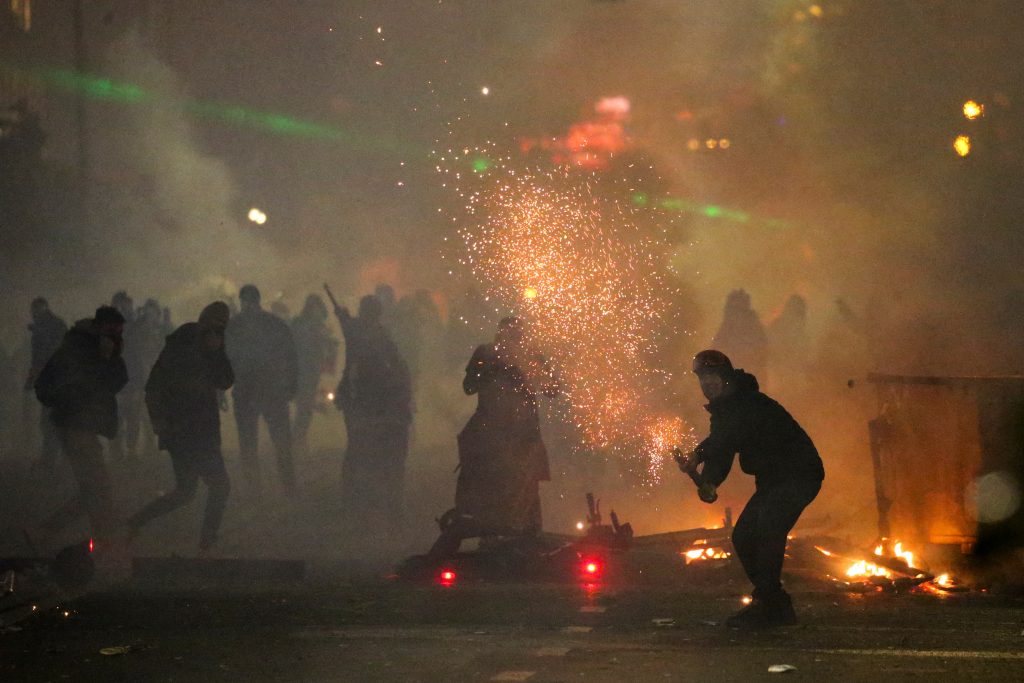The US has strongly condemned Georgia’s decision to postpone talks on joining the European Union and is backing anti-government protesters in the country.
Georgian Prime Minister Irakli Kobakhidze announced he would push back talks with the EU on Thursday after the European Parliament claimed the recent parliamentary election in Georgia, which saw the ruling Georgian Dream party win 54% of the vote, was “neither free nor fair.” Last month, the EU said it had halted Georgia’s accession talks, accusing the country of “going backward.”
Kobakhidze said Georgia would not accept any grants from the EU until 2028, the year he said the country would “be adequately prepared economically to open negotiations to become a member in 2030.”
In response, US Ambassador to Georgia Robin L. Dunnigan said the Georgia government’s decision was the “latest in a series of actions that again calls into question this government’s commitment to a Western path.”

The State Department announced it was suspending a “strategic partnership” it had with Georgia in response to the move. Kobakhidze downplayed the move, saying Georgia will deal with the incoming Trump administration.
Kobakhidze also rejected the idea that he was halting Georgia’s European integration, saying the EU’s actions were the real issue. “The only thing we have rejected is the shameful and offensive blackmail, which was, in fact, a significant obstacle to our country’s European integration,” he said.
The US also condemned Georgia’s response to protests that began after Kobakhidze’s announcement and continued through Sunday. “I call on the government to respect the rights of Georgian citizens to peacefully protest and to respect the freedom of the press to cover the protests unmolested,” Dunnigan said.
Kaja Kallas, the EU’s new foreign policy chief, also backed the protests, writing on X that the European bloc “stands with the Georgian people and their choice for a European future.”
Amid the protests, Georgia’s pro-Western President Salome Zourabichvili is saying that she will refuse to step down when her term ends at the end of the month, calling the recent parliamentary elections “illegitimate.” Zourabichvili, who was born in France and once served as the French ambassador to Georgia, called for protesters to put pressure on Georgia’s Constitutional Court and is demanding that the court recognize the election results as rigged.
Kallas and António Costa, the president of the European Council, held a call with Zourabichvili on Sunday, signaling the EU and Zourabichvili are on the same page. “Actions of government run counter to the will of the people. The EU stands with the people of #Georgia,” Costa wrote in a tweet on the call.
Kobakhidze dismissed Zourabichvili’s comments about refusing to step down, saying she will have to at the end of her term. “I understand her [Zourabichvili’s] emotional situation, but of course on December 29 she will have to leave her residence and hand over this building to the legitimately elected president,” he said.


